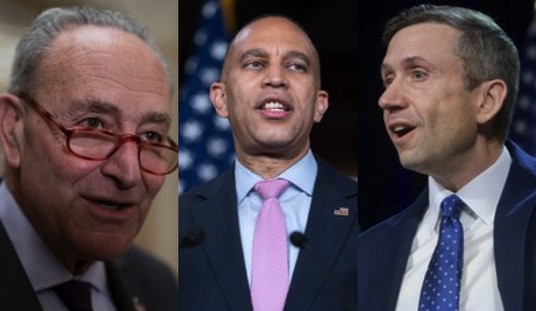
As the 2016 presidential contest plays out, a focus has come to rest on the issue of crony capitalism, or how big business pursues big government policy to benefit itself rather than the country as a whole. It is a focus that moved from the background to the foreground thanks to the Tea Party, which is as intolerant of crooked big business as it is of big government. With good reason.
Crony capitalism stands in direct opposition to free market, limited government principles. It inherently involves rigging the market through rules and laws for the benefit of those already winning, preventing new players from entering the market, assuring a continuous profit stream for entrenched interests sometimes on the back of taxpayers, and other such objectionable things. And if you don’t believe it’s a conservative issue, find a tea party activist and ask them about ethanol or “big sugar.” You’ll get a demonstration.
But how do the crony capitalists do it?
In some cases, it’s through straight up astroturf tactics, designed to make a single corporation, lobby or interest group look like a multitude of interests too big and diverse to ignore (but look closely, and you see a single big player). A good example of this is with that above-mentioned ethanol policy, where it looks like ethanol mandates are supported by a large swath of industry, some environmentalists, and average farmers and conservative and liberal activists, but in fact is really almost entirely organized and funded by a couple of big agribusinesses that benefit hugely from government telling us our fuel has to have 10% ethanol in it (despite the voluminous problems that creates).
In other cases where the same basic method is followed there are additional forces at play that make the show even easier to fake: For example, legislators being heavily invested in a sector, and not through blind trusts, where they have an obvious incentive to support legislation and regulation that advances the interests of that industry even if it is arguably bad for America, or runs counter to their philosophical principles. To put that in English: lawmakers who benefit materially from non-conservative policies.
Here, we have a fresh example, courtesy of a piece in STAT News (also covered at Politico). According to STAT News, “about 30% of US senators and 20% of representatives hold assets in biomedical and health care companies,” but more importantly, “Members of Congress are not required to recuse themselves from voting on bills that could affect their personal finances, unless they would be the primary beneficiary of the legislation.” And while some “appoint managers or trustees to take care of day-to-day investment decisions,” most “retain the right to review their portfolio … at any time. Congressional rules actually require them to be informed of all purchases and sales unless they set up a qualified blind trust, which is rare…”
This problem surely goes beyond Big Pharma and it is evident with other industries. There’s no question the pharmaceutical sector is a big part of the US economy, and many of its companies perform well, so there are reasons beyond the ability to self-deal that would motivate Members of Congress to be invested in these companies.
However, the fact is, Big Pharma is actively trying to shape policy on a number of issues at any time – right now, two priorities for them are killing legislation to make life harder for patent trolls and killing off the 340B program. Previously, they’ve been very invested in passing Medicare Part D and Obamacare.
I feel like I didn’t say that loud enough. *clears voice* Previously, they’ve been very invested in passing Medicare Part D and Obamacare.
What are the odds that more Members of Congress are behaving like Democrat Scott Peters – who owns lots of Pharma stock and happens to be simultaneously one of the guys leading the fight against patent troll legislation, despite the fact that his fellow Democrats are decidedly not fans of property rights (being the lefties that they are) – than [mc_name name=’Sen. David Vitter (R-LA)’ chamber=’senate’ mcid=’V000127′ ] who according to the STAT article, despite other ethical issues, apparently has a record of pursuing legislative action that does not benefit companies in which he is invested? My guess is, pretty high.
Where the outcome of that trend is conservative policy, that may be fine. But what about when it’s not? And let’s recognize that more often than not, the crony capitalists are not interested in small government, less regulation, or taking less taxpayer money for whatever scheme benefits them. That’s a bad thing, and something we should hear much more about in 2016.
The bottom line is, you don’t have to hate, or love, any particular program or practice. For all I know you love ethanol subsidies. But it should be agreeable to all Republicans that policy not be set by crony capitalism and shady, self-interested dealing. It should be set by what is best, what is conservative, what is moral, and what makes sense.













Join the conversation as a VIP Member